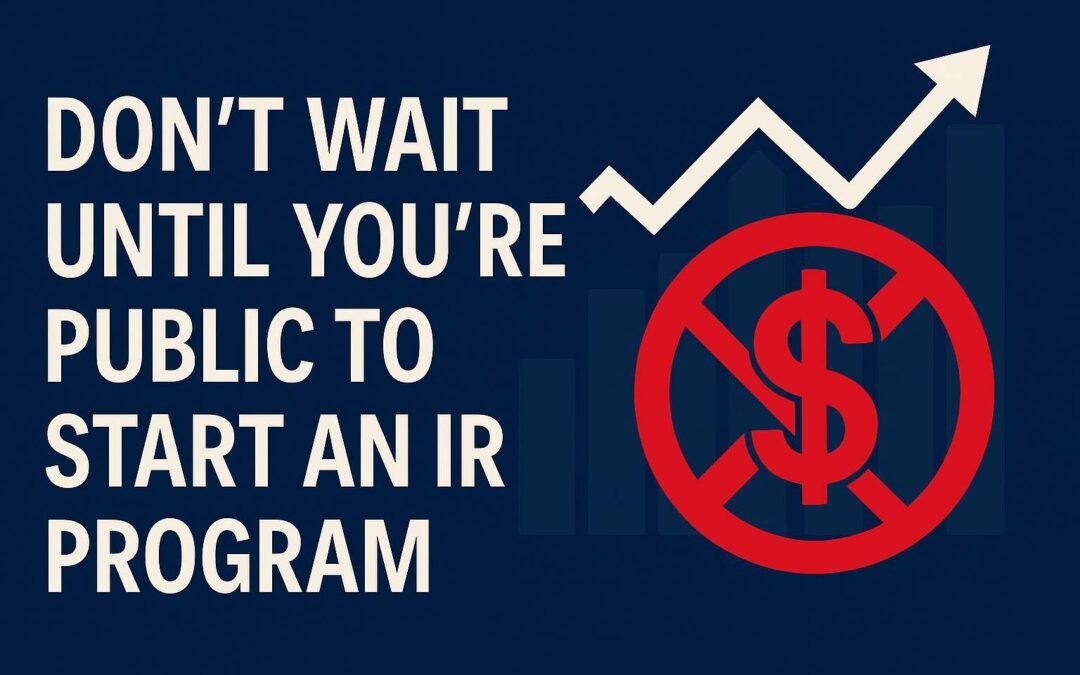Why IR Discipline Starts Before You Ring the Bell
It’s Not About Being Public—It’s About Being Ready
Most Canadian founders assume investor relations (IR) begins the day their stock starts trading. But seasoned market participants know better: how you behave before you go public determines how you’ll be perceived afterward.
By the time you’re on the exchange, investors aren’t just watching your quarterly results. They’re watching how you message risk, how you communicate setbacks, and whether your story evolves with credibility—not spin.
If the first time you think about IR is when your lawyers hand you a disclosure checklist, you’re already late.
Early-Stage IR Isn’t About Press Releases
IR is often misunderstood as a post-listing function: earnings calls, shareholder updates, newswire coordination. But at its core, IR is about trust. It’s how you earn it, maintain it, and—if necessary—repair it.
Even in private stages, that trust starts forming:
- When you meet with early investors and answer questions consistently
- When your slide deck matches your execution
- When your growth story is backed by defensible metrics
These habits, formed before the spotlight hits, shape your post-listing investor experience.
Why the Market Rewards IR Maturity
In Canada’s venture and small-cap landscape, credibility is currency. The market is skeptical, attention spans are short, and red flags move fast. Investors notice when companies show:
- Transparency around setbacks
- Consistency across filings, interviews, and presentations
- Balanced language that avoids hype without underselling milestones
This maturity isn’t something you outsource to a post-listing IR firm. It has to be embedded into your founder mindset—and your leadership culture—well before you raise capital publicly.
How to Build Early IR Muscle
Start with low-friction habits:
- Practice crafting clear, factual updates for your cap table
- Treat every investor Q&A as training for public scrutiny
- Document your KPIs and learn how to explain them plainly
- Audit your own messaging across decks, emails, and website copy
None of this requires a listing. It just requires discipline. And companies that develop this muscle early tend to gain an edge when the capital markets window opens.
Closing Thought
IR isn’t a finish line—it’s a leadership function. The best time to start acting like a public company isn’t after your listing. It’s while you still have time to build the right habits.
For more insight on preparing for life as a public issuer, including early IR infrastructure, contact us.

